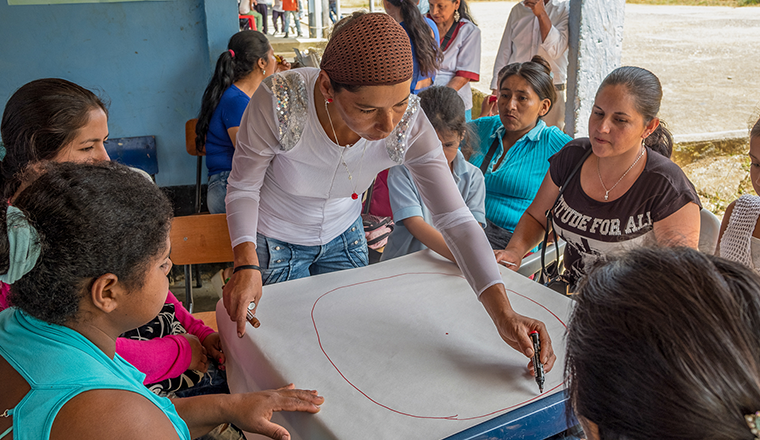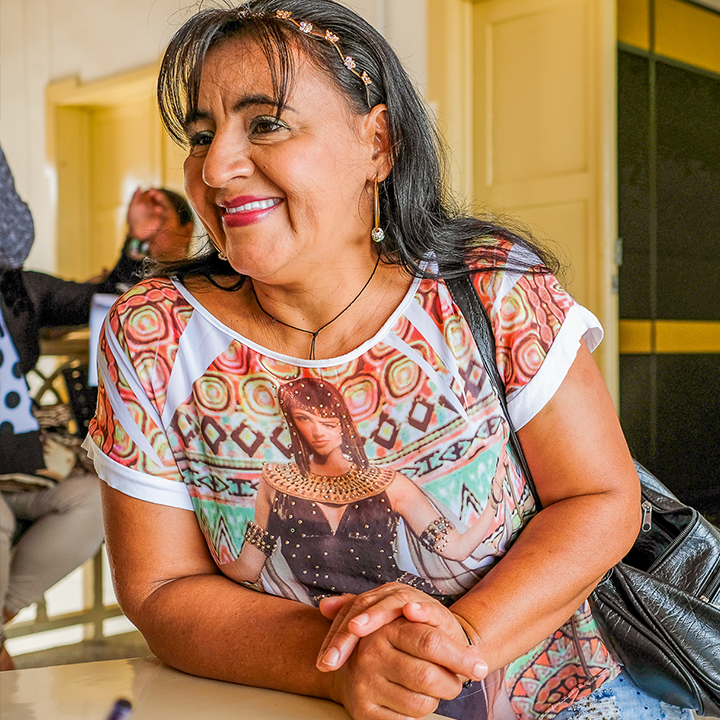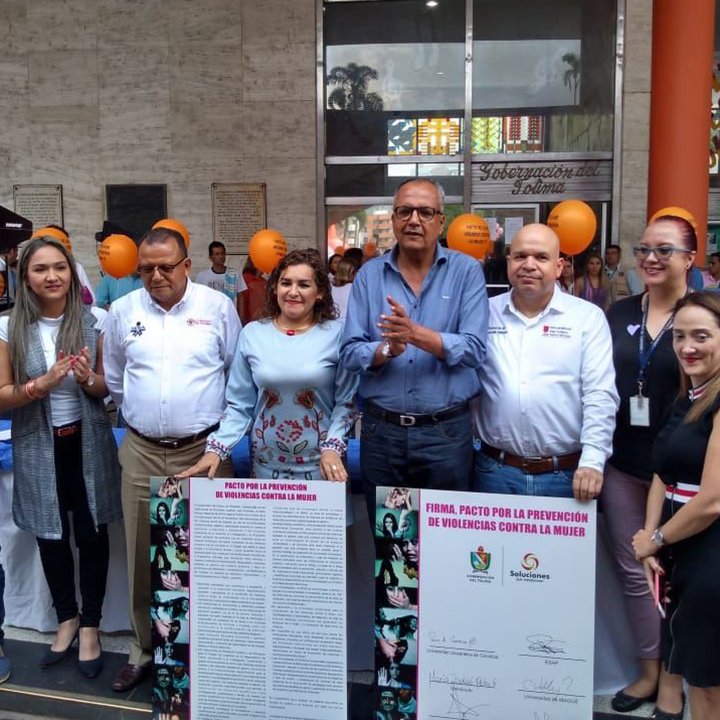In many regions of Colombia, women are subject to persistent cultural barriers including patriarchal family structures and a lack of education. They’re subject to elevated rates of exploitation and social marginalization.
Additionally, the high rate of conflict in the region contributed to the internal displacement of six million people, 50 percent women, according to the North-South Institute.
With the goal of promoting greater inclusion for women, and to improve access to basic goods and services, the USAID-funded Regional Governance Activity (RGA) project employs a cross-cutting gender strategy.
This strategy includes improving health service provisions for women by shortening wait times, expanding coverage and helping local governments implement projects, programs and public policies that include women’s perspectives and methods to address their needs.
It also encourages women’s engagement in oversight groups and supports women through grants and technical assistance to civil society organizations.
 Women participating in public policy formulation in Santander de Quilichao, Cauca.
Women participating in public policy formulation in Santander de Quilichao, Cauca.
“Peace and reconciliation in Colombia mean creating spaces for women’s participation and leadership,” said Óscar Barreto Quiroga, Governor of Tolima, in November 2018.
To strengthen public officials’ capacities to identify and address gender issues in their region, the project team partnered with the National School of Public Administration (ESAP) to create the Territorial Planning with a Gender Focus course. This 120-hour course, developed by the project, provides public officials with tools to include a gender perspective in their activities, budgets and municipal development plans.
RGA and ESAP launched the course in Cauca, where 116 officials participated. This success led the program and ESAP to replicate the experience with officials in Tolima, Caquetá, and Meta.
RGA will continue to encourage women’s participation in national development and peace efforts by empowering women to fight for their rights and to give a voice to the challenges that they face in their communities.

